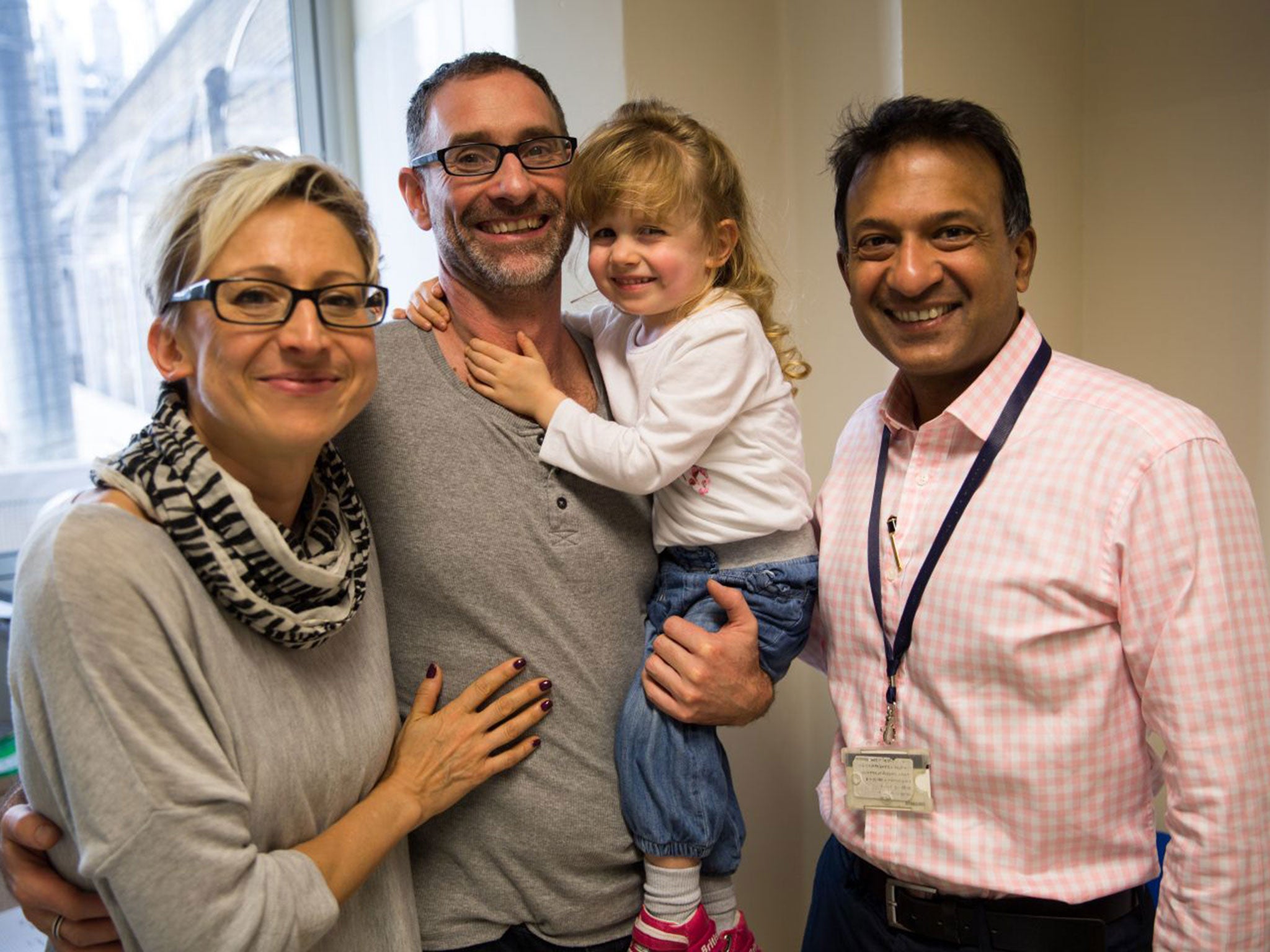How the Zayed Centre for Research will revolutionise the treatment of patients at Great Ormond Street Hospital
Centre will bring together experts and allow more staff to be hired to accelerate discovery of treatments and cures

The first centre in the world dedicated to rare diseases in childhood will help researchers and doctors from Great Ormond Street Hospital (GOSH) to revolutionise the treatment of seriously ill young patients.
The Zayed Centre for Research into Rare Disease in Children, in Guilford Street, central London, will bring together doctors from GOSH and scientists from its academic partner, the UCL Institute of Child Health.
Bringing together hundreds of experts and allowing more staff to be hired will accelerate the discovery of treatments and cures and ensure young patients gain access to the latest therapies and clinical trials.
Professor Bobby Gaspar, director designate for the new centre, which is due to open in 2018, said the “cross-fertilisation of ideas” was vital to maintain advances in cell and gene therapy. The extra space will allow a 20 per cent increase in outpatients, helping GOSH to respond to “ever-increasing demand”.
There are more than 6,000 rare diseases, including childhood cancers, cystic fibrosis and muscular dystrophy. A rare disease is defined as affecting fewer than one person in every 2,000.
Professor Gaspar said the increasing use of new gene therapies would be a “more fundamental” way to treat diseases. “You are not using external medicines. You are not doing bone-marrow transplants, using somebody else’s cells. This is using the individual’s own cells,” he added.
The new centre will be able to help patients like Nina Warnell, who was diagnosed with severe combined immunodeficiency (SCID) when she was five weeks old. The condition is sometimes dubbed “bubble baby” because patients need to live in a sterile environment. Last year The Independent’s Give to GOSH appeal heard how Nina’s treatment involved re-engineering her bone marrow to add a vital missing gene and “reboot” her immune system. SCID affects about one in every 250,000 children in the UK.
Professor Gaspar said the procedure “worked out incredibly well” for Nina and that work at the Zayed Centre for Research would allow gene therapy to move away from its current “niche” application and be used for certain skin conditions, in children born with HIV, and those with the hereditary blood disorders thalassaemia and sickle cell anaemia.
The Zayed Centre for Research will have a key role in interpreting the data received from the 100,000 Genomes project, which is sequencing DNA from patients with rare diseases or cancer and their families.
In addition, the centre’s seven “clean rooms” will be used to repair and grow new organs, such as the windpipe and oesophagus. These organs are taken from deceased donors and “reseeded” with cells from the new recipient. The centre will also enable an increase in clinical trials.
The centre, named after the late Sheikh Zayed bin Sultan Al Nahyan, who died in 2004, has been made possible by a donation of £60m from the family of the founder of the United Arab Emirates.
Professor Gaspar said: “Right from the beginning, this was not just a centre that was there to help children at Great Ormond Street. It was there to help children nationally and globally.”

Join our commenting forum
Join thought-provoking conversations, follow other Independent readers and see their replies